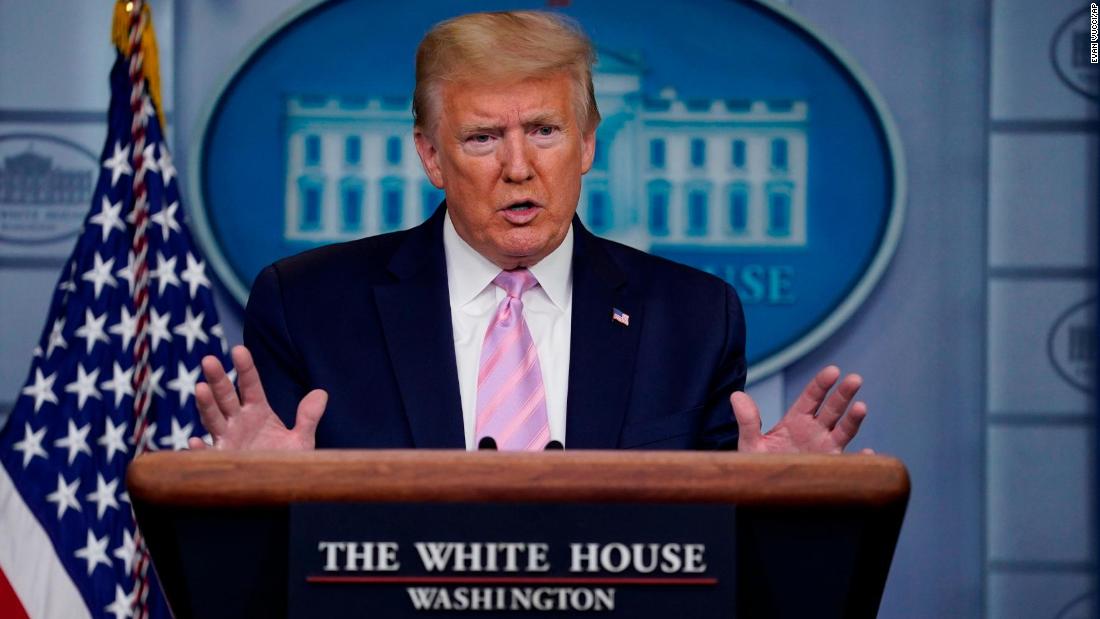But Trump seems to misstate — and overstate — his power as president. In fact, many key decisions about when to resume life as normal are not Trump’s to make.
He controls billions of dollars in federal funding, which he can distribute to assist state and local response efforts. He can open or close the executive branch of government — federal agencies, national parks, the military. And he can issue voluntary or recommended guidelines, which do not carry legal force but are broadly persuasive and important.
While the president has vast and grave responsibility for leading the nation’s coronavirus response, he cannot, on his own, simply reopen the country with a wave of his hand. Many of the key decisions affecting the everyday lives of Americans lie with state and local officials. In fact, it has been governors and mayors who have issued the stay-at-home orders while the president’s task force has issued guidelines that aren’t mandatory.
For example, every state governor has
the authority to issue quarantine or stay-home orders, and to revise or revoke those orders. The president does not have the legal authority, however, to undo a state-level quarantine order. The president also holds little if any power over matters of local government. He cannot, for example, decide when to reopen local public schools or parks. This could come to a head if the President attempts to “reopen” the country, contrary to existing state-level quarantine orders. In that scenario, the state quarantine order prevails; the president simply has no legal mechanism empowering him to overrule a state governor and to lift a state-level stay-home order.
While the President undoubtedly is the most powerful government official in the nation’s response to the pandemic, it is vital to understand that he does not have the final word on every decision. The president certainly holds vast power, but he is not all-powerful.
Now your questions:
Jim (New York): Does the Environmental Protection Agency have the legal power to relax pollution standards during the coronavirus pandemic?
Yes. Under federal law, once the president declares a national emergency —
which Trump did on March 13 — the federal government, through the EPA,
can relax some (but not all) pollution regulations.
For example, the federal government can relax certain parts of the Clean Air Act, including regulations relating to
disposal of waste at sea, and regulations on transportation and storage of potentially dangerous chemicals.
On March 26,
the EPA announced that it would scale back its enforcement operations during the coronavirus crisis due to shortages of personnel and social distancing restrictions. Essentially, the EPA announced that, while no law or regulation has been relaxed, it will not be able to fully monitor and enforce existing law as the crisis continues.
Opponents of the move called it an “open license to pollute,” while
defenders note that the EPA has not rolled back any existing law or regulation.
Chris (Colorado): Is there a legal definition of “essential services” that would allow certain types of businesses — such as gun shop owners — to challenge a forced closure?
There is no single overarching, universally-applicable legal definition of “essential services,” but the Department of Health and Human Services (HHS)
has issued useful guidance on what types of business are “essential,” including health care operations, supermarkets, pharmacies, garbage collection, law enforcement, gas stations, banks and warehousing and distribution, among others.
The specific criteria for “essential services”
vary by state and locality, and even then, the term often remains vague or completely undefined. Like a decision to impose or lift quarantine orders, determinations about “essential” businesses lie largely in the hands of state and local authorities.
A business does have the legal authority to challenge a determination that it is not “essential” by applying to state and local authorities
for a waiver enabling it to open during the pandemic. Those determinations can, and likely will, vary from state to state, particularly with respect to businesses outside the core guidance from HHS.
Thomas (Colorado): As Attorney General, could William Barr overrule a decision to charge (or not charge) made by Justice Department prosecutors who are investigating stock sell-offs by certain senators shortly before the market downturn caused by the coronavirus crisis?
Yes, he can. As attorney general, Barr is head of the Justice Department, and he has the authority to overrule federal prosecutors — US attorneys and assistant US attorneys — throughout the country. Justice Department supervisors tend to respect and follow the recommendations of the team working a case directly, but at times, supervisors can and do overrule the rank-and-file.
Given the potential political implications of a decision to charge (or not charge) a sitting US senator with a federal crime, expect Barr to be directly involved. The Justice Manual, a guide to internal Justice Department policies,
requires that US attorneys notify Justice Department headquarters of key decisions on any “
sensitive matter.” And Barr recently
issued a memo stressing that investigations that could impact the 2020 election must be forwarded to top Justice Department officials for review. So, Barr certainly should have notice and opportunity to intervene, if he so chooses.
Three questions to watch:
1. When, if ever, will the Supreme Court follow the lead of other courts and
adopt readily available video technology to resume full functioning?
2. Will the President use the Defense Production Act
more aggressively, as several state governors and other officials have urged?
3. Will more states and the Justice Department
release certain nonviolent inmates early?


